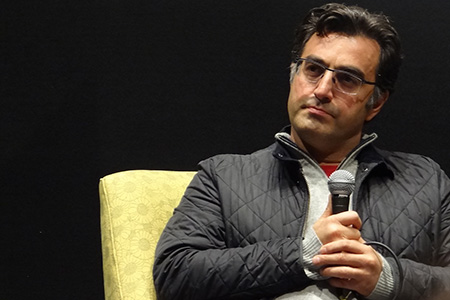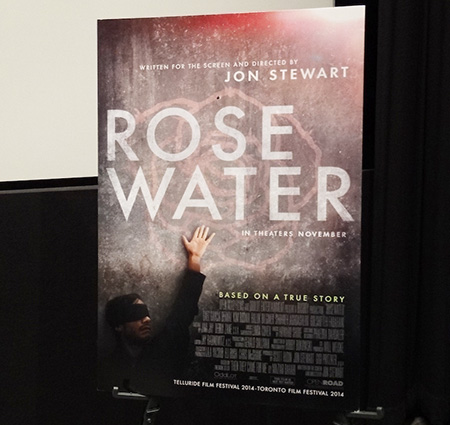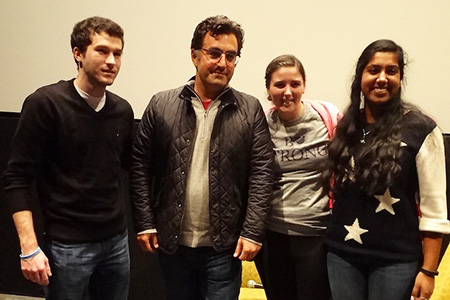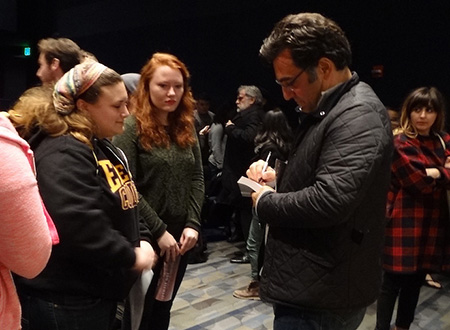Journalist jailed for ’Daily Show’
Maziar Bahari, the Canadian-Iranian journalist whose detainment for 118 days in Iran after his appearance on The Daily Show became the subject of a new film, Rosewater, spoke with Emerson students on November 5, after an advanced screening in the Bright Family Screening Room.

Maziar Bahari in the Bright Family Screening Room of the Paramount Center on November 5. (Photo by Emily Theytaz ’17)
Rosewater is a drama based on the true story of Bahari’s arrest in June 2009 after conducting an interview on The Daily Show with Jon Stewart regarding Iran’s presidential election. Stewart makes his directorial debut with Rosewater, which is also based on Bahari’s book Then They Came for Me (2011, Random House).
“Doing this for me was selfish because you become more traumatized if you don’t talk about it,” Bahari said of writing his book and participating in the film. “In order to start the healing process, you have to talk about it.”

A poster for Rosewater in the Paramount Center. (Photo by Emily Theytaz ’17)
Bahari was much like the character portrayal of himself in the film (by actor Gael Garcia Bernal), and held a comedic tone throughout his discussion with students, which was moderated by Journalism Associate Professor Jerry Lanson.
Bahari said he began speaking with Stewart about his ordeal almost immediately after being released from jail. Stewart brought up the idea of a movie after Bahari’s book was released in 2011.
“Jon said, ‘You know, we can’t wait anymore,’ that my story needed to be told quickly,” Bahari said. “It was quite a collaborative effort, and he was open to suggestions and ideas. I knew it couldn’t be like the book or else it was going to be really long and boring. I was involved in the character building, and I think he did a great job creating a good film narrative.”

Bahari poses for photos with students after the event. (Photo by Emily Theytaz ’17)
During the discussion, a student asked Bahari if he would ever consider returning to Iran.
“I cannot go back to Iran,” he said. “I have a 16-and-a-half-year sentence on me. I was released on bail—a $300,000 bail—but I cannot go back. I always compare my forced exile from Iran to losing a limb. I can either brood about losing that limb, or I can try to use my powers. Of course, because of social media and modern communications, it is very easy to keep in contact with everything happening in Iran.”

Bahari signs autographs for students after the event. (Photo by Emily Theytaz ’17)
Categories